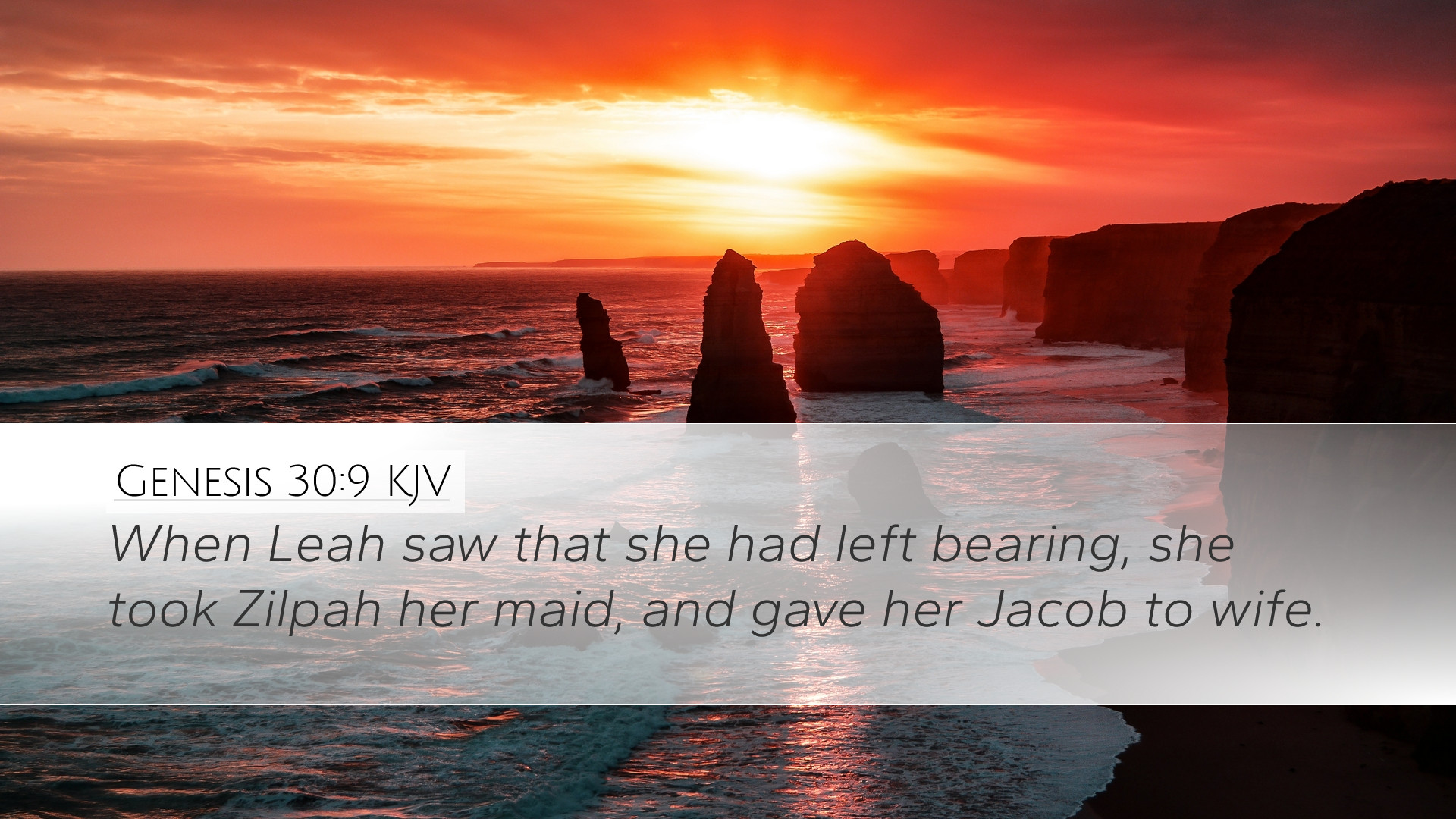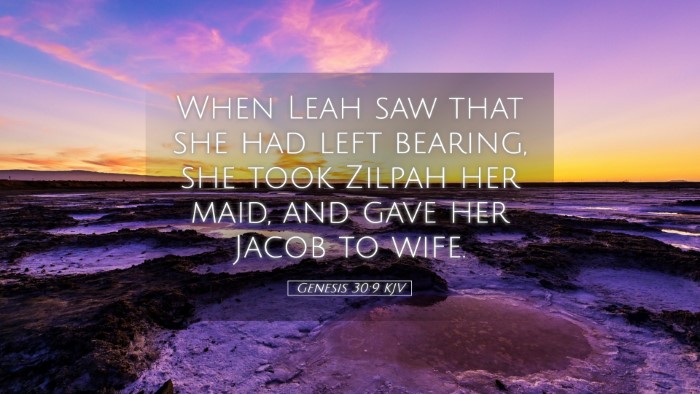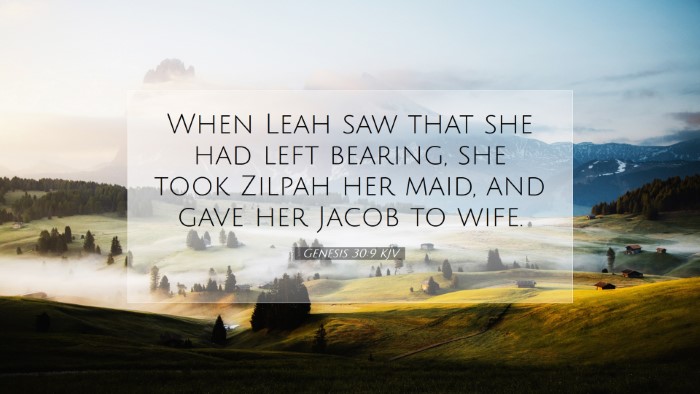Commentary on Genesis 30:9
Verse Context: Genesis 30:9 states, "When Leah saw that she had stopped bearing children, she took her maid Zilpah and gave her to Jacob as a wife." This verse is situated in the broader narrative of Jacob's family dynamics, highlighting the competing desires and actions of Leah and Rachel, his two wives.
Insights from Public Domain Commentaries
Matthew Henry's Commentary
Matthew Henry points out that Leah's action of giving Zilpah to Jacob is a reflection of her desperation and inability to bear more children. This act reveals her desire to enhance her status amidst Rachel’s emotional strife over her own infertility.
Henry notes that Leah, despite being blessed with children, was motivated by rivalry to seek further expansion of her family through Zilpah. This competition characterizes much of the relationship dynamics within Jacob's household.
Key Themes:
- Desperation in Family: Leah’s actions stem from her desire to rival her sister, indicating deep emotional struggles among the siblings.
- The Role of Companionship: By giving Zilpah as a wife to Jacob, Leah fulfills the societal expectations of women during that time, influencing family lineage.
Albert Barnes' Notes on the Bible
Albert Barnes elaborates on the cultural backdrop of polygamy in this period. He discusses how familial lineage was of utmost importance, leading Leah to offer her maid as a wife to Jacob to gain favor and further bolster her claim over Rachel.
Barnes interprets this act not merely as an act of rivalry but as an expression of Leah's belief that motherhood defined her worth. The introduction of Zilpah into the family dynamic introduces additional complexity, further complicating relational interdependence among them.
Important Considerations:
- Societal Norms: Barnes highlights that rather than viewing Leah's actions from a moral standpoint, one must consider the societal norms of the time where barrenness was equated to shame.
- Character Analysis: He brings to light Leah's motivations, portraying her as a deeply wounded individual seeking validation through childbearing.
Adam Clarke's Commentary
Adam Clarke offers insight into the personal ramifications of Leah’s actions. He stresses the tragic element present in Leah's need to compete for Jacob's affection. The dynamic in which Leah feels compelled to use her maid as a vessel to provide more children reflects her internal struggle for love and validation.
Moreover, Clarke suggests that Leah’s decision portrays not simply personal turmoil but a poignant commentary on the nature of love and relationship; one that can become transactional when overshadowed by rivalry and insecurity.
Additional Reflections:
- Transactional Relationships: Clarke mentions the dangers of allowing competition to dictate personal relationships which can lead to dehumanization.
- The Pathos of Sisterhood: He reflects on the bond that Leah and Rachel could have shared, were it not for their rivalry fueled by insecurities and societal expectations.
Theological Themes
The theological implications of Genesis 30:9 demonstrate the depth of human emotion and relational complexity. God's ultimate design for family and community often intersects with human failings and misunderstandings.
- The Complexity of Relationships: The verse underscores how human relationships, even within a familial context, are fraught with competition and rivalry.
- Divine Sovereignty: Even in imperfect human situations like those of Leah and Rachel, God’s providential plan is being worked out, leading to significant theological themes of grace and favor.
- Human Desperation: This passage encourages consideration of how desperation can lead individuals to make decisions that may impact their moral and relational integrity.
Conclusion
The analysis of Genesis 30:9, through the lenses of Matthew Henry, Albert Barnes, and Adam Clarke, provides rich theological and relational insights. Each commentary reveals the profound impact of Leah's actions on her family dynamics and the broader narrative of Jacob's lineage. This verse serves not only as a historical account but as a mirror reflecting the complexities of human emotions, relational strife, and the overarching purposes of God that continue to resonate in the life of the believer today.


